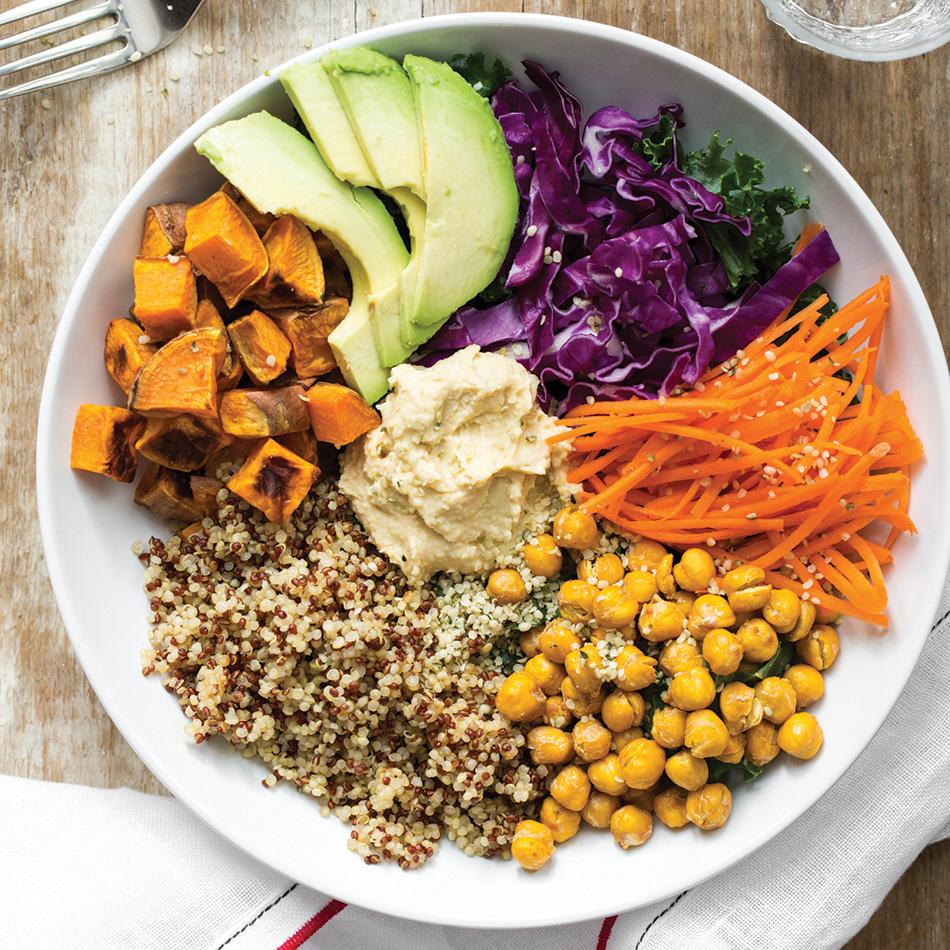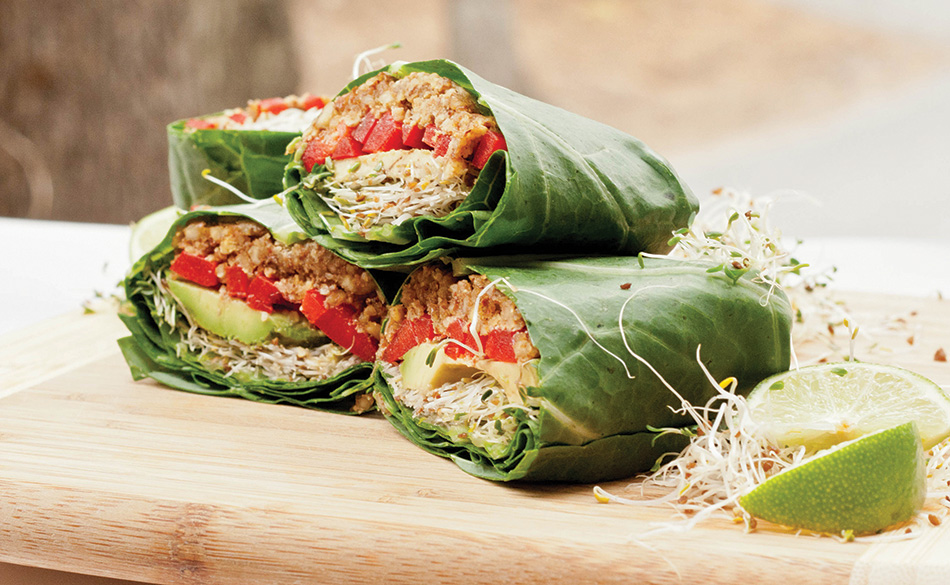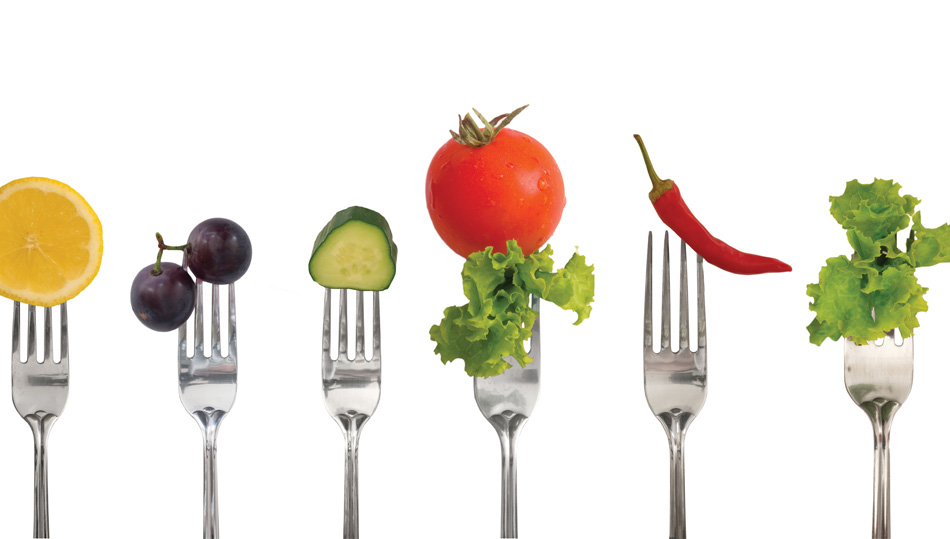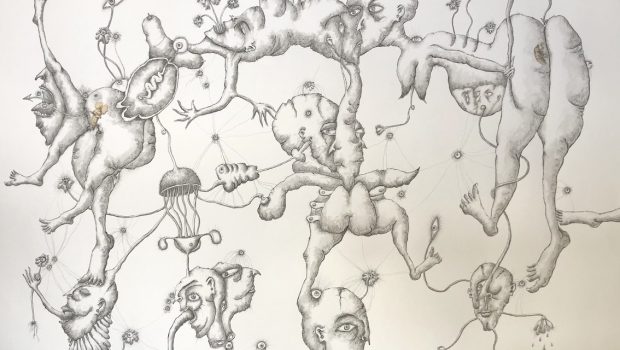vegan logic
Dr Ilan Goldberg eradicates some veganism myths, explains how to have a good vegan diet, and explores why the United Nations Environment Programme has issued a report in 2010 that recommends a global shift towards a vegan diet...
Words: Dr Ilan Goldberg

What do Ellen DeGeneres, Pamela Anderson, Natalie Portman, Alicia Silverstone, Joaquine Phoenix, and Russell Brand have in common? How about Bill Clinton and Al Gore? Or Usher, Moby, Justin Timberlake, Alanis Morissette, and Prince? One last clue: Mike Tyson, Venus Williams, Carl Lewis, and Patrik Baboumian do it too. Would you have guessed that all of these people refrain from eating animal products? Veganism is gaining a strong following throughout the Western world. From politicians to business leaders, from boxers to environmentalists, from body builders to chefs, the list of famous vegans is surprisingly large, and growing larger by the day. Our beautiful isles have their own growing vegan culture, and we host an increasing number of vegan tourists who are looking for vegan friendly products and services.
What is a vegan diet you ask? And what can knowledge of veganism offer you? Well, consider these questions first: Are you interested in living a longer and healthier life or in keeping your weight under control? Do you care about the environment? Do you care about the wellbeing of animals? Would you like to make your business more attractive to this expanding niche? If you answered yes to any of the above you might want to hold on to your chair because this is going to be one hell of a ride.
Let’s get the hardest bit out of the way first and talk about what vegans eat, or more importantly, what they refrain from eating. Vegans don’t eat meat, dairy or eggs. Why would anyone do something so extreme? Don’t they like meat and cheese? How do they get enough protein, iron, calcium, or B12? When people first hear of veganism they usually wonder how hard such a diet must be, or that it is not tasty, healthy, or natural. Actual vegans, however, love and enjoy an endless variety of foods that includes vegan versions of everything you eat. Their diet is more natural and less expensive. Being vegan has never been so easy. Surprised? I was too. Now that we know the most frightening thing about veganism, let’s investigate some of the reasoning or logic behind it.
There are three main arguments for going vegan: It is healthier, better for the environment and better for animals. I will outline each one in turn. Then I will deal with the ten most popular vegan myths, and finally, I will give you my recommendations for trying veganism the easy way and for making your business more attractive to vegan clientele.

The claim that a vegan diet is healthier than a non-vegan diet seems to be controversial at the very least. We have been brought up to believe that meat, dairy and eggs contain important nutrients that are hard to get elsewhere, like iron, protein, vitamin B12, omega-3 fatty acids, calcium, to name just a few. This is partly true, and partly false. You can get these nutrients from meat, dairy and eggs, but a considerable amount of scientific research conducted over decades has now conclusively shown that all the nutrients that people need are readily available in a good vegan diet. This includes women who are pregnant or breast feeding, as well as babies. The science has also shown that consumption of meat, dairy and eggs increases the likelihood of having cancer, heart disease, diabetes and several other common ailments.
Notice that I wrote “a good vegan diet”. What is a good vegan diet? Think of everything you normally eat, if you can. Now take out everything that includes meat, dairy and eggs (even a little). What’s left? If you eat a typical Maltese diet, the answer is not much. You will probably not get all the nutrients you need from such a diet, and you will definitely not enjoy it. So let’s try it another way. Think of all your favourite dishes. If you Google any of your favourite dishes and add “vegan” in the search terms, for example “vegan tiramisu”, you will typically find dozens of videos and recipes to try. On top of these, there is a limitless variety of vegan dishes that you may not have heard of: Amazingly tasty dishes from around the world that will only serve to expand your culinary repertoire.
With a little bit of initial effort you will find that you enjoy healthy vegan food just as much if not more. So if you are asking yourself if it’s possible to make Nanna’s torta without eggs, the answer is most definitely yes, but you will have to learn a new way of making it.
The second reason people switch to a vegan lifestyle is that it is better for the environment – a lot better. How so? We now know that animals are much less efficient at producing nutrients than plants. When animals are grown for food, almost all of the nutrients that they are fed never reach us. Consider the protein in beef for example. Almost all the protein that was fed to a steer will not be found in its meat. It would have been used by the steer to sustain its own biological processes well before its slaughter. As far as humans and the environment are concerned, these proteins would have been completely wasted. When meat, dairy and eggs are produced, the animals act as nutritional filters. They use almost all the nutrients themselves, and only leave a little at the end for humans to consume. Instead of growing plants to feed animals that we can eat in turn, we can bypass this nutritional filter and get our nutrients directly from plant foods. This means feeding the same amount of people but using much less resources like land and water, and producing much less pollutants like greenhouse gasses and nitrogen.
Altogether, animal agriculture is the number one cause of environmental degradation and species extinction. This is why the United Nations Environment Programme has issued a report in 2010 that recommends a global shift towards a vegan diet in order to avert the worst effects of climate change.
The third and last main reason for going vegan is probably the most difficult to reach agreement on. Many vegans believe that there is a good moral reason for not eating animal products. When they try to explain this reason to non-vegans, they are often told that morality is subjective – a matter of personal choice – or that morality doesn’t apply to animals in the same way that it applies to humans. Because this area is likely to produce a very heated debate, I would like to stick only to things we can all agree on. I think we can all agree that it is not okay to harm an animal unnecessarily or gratuitously. Since vegan food can be both healthy and tasty, it is actually not necessary for humans to eat animal products. So the only question that remains is this: Can meat, dairy and eggs be produced without harming animals? The answer to this question depends a lot on who you ask. But I believe that even here we can reach some kind of agreement.

If you ask people representing the industry, what they tell us is that they abide by animal welfare laws that were put in place to make sure that animal agriculture is humane. Whenever animal rights activists infiltrate farms and slaughterhouses and release videos that show serious abuse, the normal response of industry representatives is to say that the particular place in the video was not typical. They also say that no outside intervention is needed to protect the animals because people in the industry care about animals, and so will do their best to make sure this does not happen again. The image the industry is trying to promote through advertising is also one of happy cooperative animals. Less biased experts tell a different story. Scientists who have been investigating how farm animals think and feel tell us that their psychological makeup is very similar to our own. These animals suffer very similarly to how we would suffer if our freedom and family were taken from us. They feel exactly the same pain when their bodies are mutilated. (Mutilations like dehorning, debeaking, and castration are standard practice in modern farming. These are done without anaesthetic and cause the animal excruciating pain.) Crucially, scientists also tell us that these animals value their life much like we do. That means that depriving them of that life amounts to a very substantial harm. Animal rights activists have also helped cast doubt about the industry’s position by getting video cameras into farms and slaughterhouses. A few years ago it would have been very hard for people outside the industry to see standard practices with their own eyes. Today all the evidence is just a few clicks away. If you want to know more about the reasoning behind veganism try Forks over Knives (health), Cowspiracy (environment), and Earthlings (animal rights). These documentaries are available online. There is a wealth of other resources online, including very active vegan communities that will help you with delicious recipes and practical advice if you choose to try it out.
Attracting vegan clientele is quite easy, but there are a few things that you will need to keep in mind. Vegans in Malta will be happy to share knowledge of your business through online communities if you let them know about your products or services. Vegan tourists that are planning their visit will ask local vegans about places to stay and dine, so contacting local vegan groups is great for attracting tourists as well. These networks will also review your business so make sure you keep in contact and act on their feedback. Offering vegan options in your menu should not be a matter of removing the non-vegan ingredients from existing dishes. Your chef must commit to studying vegan cuisine and developing real vegan options. Owners of supermarkets and health shops have literally thousands of products to choose from, with a multitude of very successful vegan meats, milks, cheeses, yogurts, cosmetics and more. Vegan clients, especially tourists, would appreciate it if shop assistants know where to find vegan products. As the vegan niche continues to grow, a dedicated vegan section would be even better. Veganism is on the rise among the health-conscious and those who care about the environment and other species. All indications are that it is becoming a legitimate and celebrated part of global culture. Malta, meet veganism.








